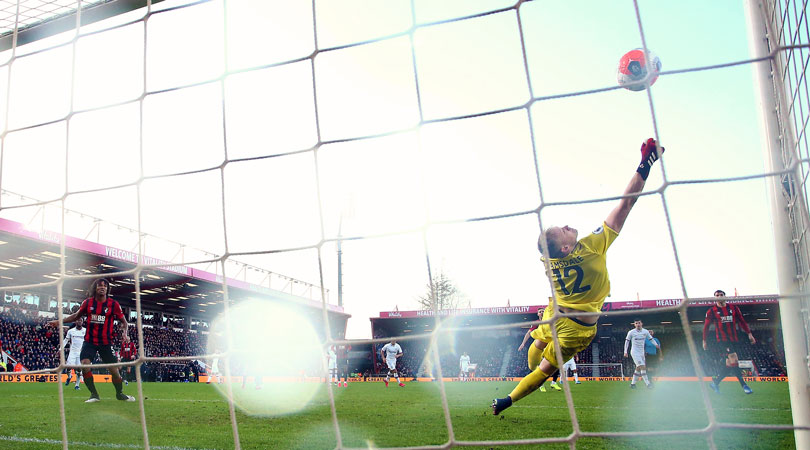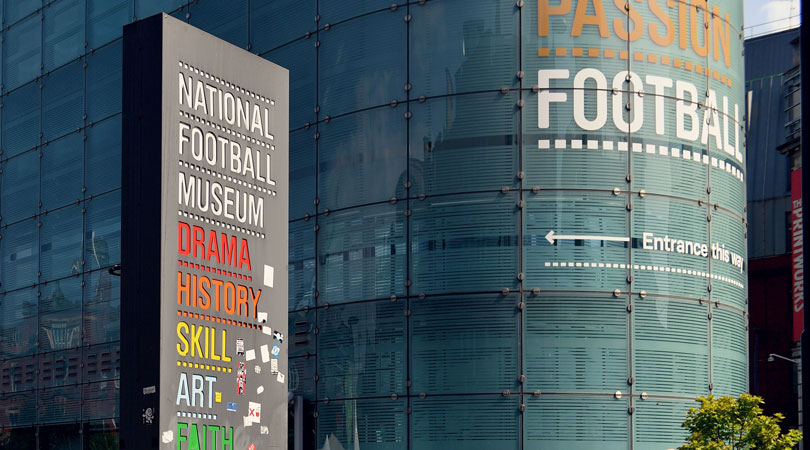How Bournemouth's performance on Saturday was proof of small margins in a relegation battle
The Cherries find themselves in a fight for survival - and every aspect of the match against Chelsea showcased the perilous situation

Harry Wilson wore a throwback shirt on the front of Saturday’s match programme. He didn’t see the pitch during Bournemouth’s 2-2 draw with Chelsea, but that image still caught the local mood.
Those green and black stripes belonged to the Football League days, the begging with buckets days, and while Bournemouth aren’t about to return to that kind of poverty, the threat of being relegated back to where they came from is very real.
They were better on Saturday. Ultimately not quite good enough to hold on to a winning position and alleviate those fears, but well worth their point.
At times, though, Bournemouth were playing as much against themselves as they were Chelsea. Particularly at 2-1, particularly when they had something to protect. Those were long, long minutes and they became longer after Marcos Alonso equalised and the players and fans realised that after everything, after such a desperate struggle, they still might lose the game and end up with nothing.
They didn’t, but this is what makes the battle to beat the drop such a compelling spectacle. It’s not because the football is good – it rarely is – or even that it’s that dramatic. Instead, it’s this palpable sense that something is having to be overcome. A whole season’s worth of bad experiences. The muscle memory from six months of disappointment.
A week before Bournemouth faced Chelsea, they’d suffered at the hands of VAR. Twice they had goals against Burnley ruled out. On the second occasion, Stockley Park not only took away their equaliser, but sent the ball down the other end of the pitch and to the penalty spot.
When things like that happen, regardless of whether the decisions are right or wrong, it must be hard not to believe that someone or something is conspiring against you.
Get FourFourTwo Newsletter
The best features, fun and footballing quizzes, straight to your inbox every week.
So, there’s usually baggage in this situation. So much of it, in fact, that watching teams at the bottom end of the table at this time of year can feel voyeuristic. It’s like intruding on a private trauma, in which the afflicted side is gripped by a deep, humiliating psychosis. For the spectator, the impulse is to leave their seat, allowing the players some time on their own to get a hold of themselves.
Go and have a shower, put on a fresh set of clothes. We'll all come back when things aren’t quite so ugly and uncomfortable.
There’s no such luxury, sadly, not with May getting big in the window.
But these are interesting experiences, because they describe how teams suffer when their futures are at stake. While many of professional football’s mechanics are taken for granted – the perfect touches, the slick passes, the automatic positioning – a loss of form restores a certain context. It makes everything look that much harder.
Instead of being clipped down the line, clearances are hacked hopelessly up in the air, sometimes even catching the wind and blowing back towards danger. Rather than meeting crosses with the flat of their forehead, centre-backs can only splay them out for another corner. More peril, more danger, more anxiety.
Bournemouth had all of those flaws on Saturday, but they worked ever so hard in trying to overcome them. It was a fascinating struggle. To see Callum Wilson continually press Frank Lampard’s centre-halves, even though the one-on-three made his task virtually hopeless. Or the way the defence kept shifting across its box in the final half-an-hour, trying desperately to fill the space that Chelsea just kept on finding.
It was a battle. Not in the trite, cliched sense – in the Sunday League way – but an actual battle. In which every touch was important, when even kicking the ball off the pitch and into the stand felt like a small victory. Bournemouth worked. They worked and they worked and they worked. And it still wasn't quite enough.
The game’s decisive moment came in the 85th minute. Pedro whipped a shot across Aaron Ramsdale, the Bournemouth ‘keeper made an excellent block down to his right, but Alonso was first to the rebound and there to steer it high into the net. 2-2.
Ramsdale actually got fingertips to that header. He even managed to claw it up and against the top of the post. Had he reached the ball a split-second earlier, he would have kept it out, making one of the best double saves of this or any other season.
Perhaps it would have been the turning point. Maybe the moment which secured three precious points and brought all of this side's old convictions rushing back. Ten years from now, Aaron Ramsdale could have been giving interviews about that save - about how quickly he regained his feet, how Alonso sank to his knees in disbelief, and what holding on to win meant to his teammates that day.
Legs became lighter, first touches became better. There, after a long, hard winter, was the sun breaking through the clouds, ready to soothe bruised egos and fragile minds.
But he didn't make it. He gloved the ball onto the post, it ricocheted into the net, and Chelsea were running back to the halfway line before the crowd had even fallen silent. It’s a game of millimetres, not inches, and it leaves Bournemouth still running into the rain.
While you’re here, why not take advantage of our brilliant subscribers’ offer? Get the game’s greatest stories and best journalism direct to your door for only £12.25 every three months – less than £3.80 per issue – and you’ll also receive bookazines worth £29.97!
READ MORE...
CITY Why beating Real Madrid was Manchester City's finest European night - and the start of something new
QUIZ Can you name every British team to play in a European final?
Seb Stafford-Bloor is a football writer at Tifo Football and member of the Football Writers' Association. He was formerly a regularly columnist for the FourFourTwo website, covering all aspects of the game, including tactical analysis, reaction pieces, longer-term trends and critiquing the increasingly shady business of football's financial side and authorities' decision-making.

